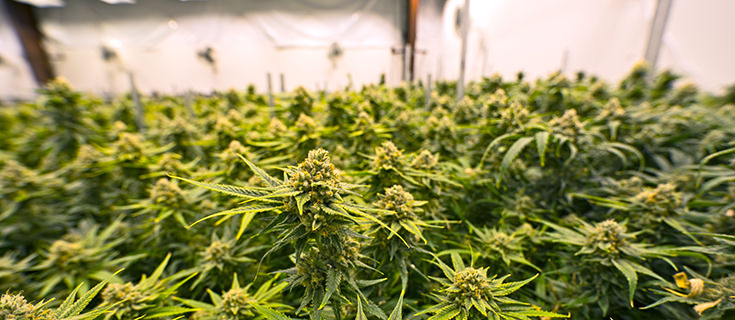victims for over 25 years.
Thinking of Driving High? Save Lives – Don’t Smoke and Drive!
 When it comes to marijuana legalization, Colorado is at the forefront of discovering the drug’s medical benefits and its collateral dangers. Truly, we are the Wild West when it comes to marijuana economics, policies, medical uses, federal-versus-state enforcement wrangling and agriculture.
When it comes to marijuana legalization, Colorado is at the forefront of discovering the drug’s medical benefits and its collateral dangers. Truly, we are the Wild West when it comes to marijuana economics, policies, medical uses, federal-versus-state enforcement wrangling and agriculture.
One area, though, seems to be growing clear as more data comes in: marijuana legalization and driving high leads to an increase in car crashes. Translation: don’t smoke and drive.
A recent study conducted by the Highway Loss Data Institute (HLDI) found:
“After retail marijuana sales began in Colorado, the increase in collision claim frequency was 14 percent higher than in nearby Nebraska, Utah and Wyoming. Washington’s estimated increase in claim frequency was 6 percent higher than in Montana and Idaho, and Oregon’s estimated increase in claim frequency was 4 percent higher than in Idaho, Montana and Nevada.”
While much more research needs to be done on driving high it’s clear that our roads have become less safe due to pot smoking.
In Colorado, drivers with 5 nanograms of active tetrahydrocannabinol (THC) in their blood can be prosecuted for driving high (driving under the influence).
Colorado’s History with Marijuana Legalization
 Colorado is at the forefront of the marijuana legalization movement. (And for a while there, we were the favored butt of many late-night jokes!)
Colorado is at the forefront of the marijuana legalization movement. (And for a while there, we were the favored butt of many late-night jokes!)
I thought I’d provide a brief timeline of Colorado’s dance with the pot legalization movement:
1975: In response to the Nixon administration’s “Shafer Commission” report, which came out in 1972, Colorado decreased the penalty for marijuana possession. The state made possession of less than 1 ounce of pot a petty offense with a $100 fine. There were stricter penalties for people who possessed more than 1 ounce or if they distributed or cultivated the drug.
2000: Colorado legalized medical marijuana. Called “The Medical Use of Marijuana Act,” or “Amendment 20,” this law allows marijuana use “for persons suffering from debilitating medical conditions.”
2006: Colorado attempts to legalize marijuana use but it fails to pass the vote.
2009 & 2010: The town of Breckenridge votes by 73% to legalize marijuana and the law goes into effect in 2010. The law states that people 21 years and older are allowed to possess 1 ounce or less of the drug.
2012: The rest of Colorado votes to legalize marijuana in a law known as “Amendment 64,” making Colorado one of the first states to legalize the drug.
2013: New laws go into effect regulating the blood levels for driving high. (See more on this topic below.) New taxes are also signed into law.
2014: Recreational marijuana sales begin.
Marijuana Legalization Increases the Likelihood of Crashes
Of course, one of the major concerns when legalizing a new drug is its impact on public health and safety. I’ve often heard people say, “I don’t care if other people want to smoke pot. What I do care about is if they smoke and drive.”
![]() Truly, it seems that many Coloradans are fine with the idea of people smoking pot, but they don’t want those people to threaten the safety of those who aren’t driving high. Makes sense.
Truly, it seems that many Coloradans are fine with the idea of people smoking pot, but they don’t want those people to threaten the safety of those who aren’t driving high. Makes sense.
Sadly, though, it does appear that Colorado’s legalization of the drug correlates directly to increased car crashes on Colorado roads and highways. Of course, there are many other concerns (such as edibles that look like candy finding their way into children’s hands), but in this blog I will just address the increased incidents of car crashes.
The HLDI study I quoted earlier goes on to report:
“Legalizing recreational marijuana use in Colorado, Oregon and Washington has resulted in collision claim frequencies that are about 3 percent higher overall than would have been expected without legalization, a new Highway Loss Data Institute (HLDI) analysis shows. This is HLDI’s first report on how marijuana legalization since 2014 has affected crashes reported to insurers.”
“More drivers admit to using marijuana, and it is showing up more frequently among people involved in crashes.”
“Colorado saw the biggest estimated increase in claim frequency compared with its control states.”
Clearly, this is an issue that our state must aggressively tackle in order to save lives.
What Are the Levels of Impairment for Marijuana?
In Colorado, drivers with 5 nanograms of active tetrahydrocannabinol (THC) in their blood can be prosecuted for driving under the influence. However, the Colorado Department of Transportation also states, “No matter the level of THC, law enforcement officers base arrests on observed impairment.”
NOTE: Chronic users of marijuana may have 5 nanograms of THC in their blood stream at all times! There is some debate about whether the 5 nanogram limit is “fair,” given the fact that chronic users may not be as impaired as novice users, but the law is the law. If you are a chronic user of marijuana (including for medicinal purposes), you should strongly consider using public transportation.
Additionally, there are more penalties for driving while high with children in their car.
I think the equation is as simple as drinking and driving: Don’t do it. Do not smoke and drive.
Teen Drivers and Marijuana Use
Just as with alcohol, marijuana use by teens is illegal. If they smoke and drive, they will be prosecuted. But the real concern is to their safety and the safety of others.
Muir Wood Adolescent and Family Services reported:
- About 20 percent of teenage drivers reported that they operated a vehicle while under the influence of marijuana.
- About 33 percent of these drivers said they were unconcerned with driving while high because they didn’t think that marijuana use negatively impacted their driving ability.
- Comparably, less than 20 percent of teens who drove a car after drinking alcohol thought they were less safe drivers while under the influence of alcohol.
If you live in Colorado and you have a teenage driver in the house, you need to add marijuana use to your list of discussion topics before you hand over the keys. Teens need to understand that pot impairs their ability to drive (not to mention other important decision-making skills) and they should never get behind the wheel after consuming marijuana.
If you have any questions about this article, or if you were in an accident caused by someone impaired by marijuana, please call me today.
Related articles:
Worst Car Insurance Companies — Read the American Association for Justice’s top 10 list as well as the companies the attorneys in our office rate as the worst to insure your car or motorcycle.
8 Dos and Don’ts 24 Hours After an Accident — There are things you can do to protect yourself and things that can lose you thousands of dollars. Know the difference.
Free Consultation
Search For
Recent Articles
- Are all motorcycles created equal?
- Frequently Asked Questions about Personal Injury Attorneys
- How Do Personal Injury Attorneys Calculate Future Medical Expenses in a Car Crash Settlement?
- Ways to Increase Your Visibility When Riding Your Bicycle in Denver
- 5 Reasons to Hire a Personal Injury Attorney if a Loved One Is Injured
Categories
- Arvada
- Aurora
- Auto Accident eBook
- Auto Insurance
- Bicycle
- Bicycle/Motorcycle Accidents
- Bodily injury
- Car accidents
- Centennial
- Colorado
- Colorado Legislature
- community
- Concussion
- Denver
- distracted driving
- DUI Accidents
- Englewood
- Events
- Flood Insurance
- Fort Collins
- Highlands Ranch
- Hit and Run
- In The News
- insurance companies
- Lakewood
- Littleton
- Marijuana DUI
- Motorcycle Accidents
- Motorcycle Insurance
- Motorcycle Law eBook
- Motorcycles
- Newsletter
- Pedestrian
- Personal Injury Law
- Safe Driving
- Safety
- Scooters
- technology
- Thornton
- Tips
- Uncategorized
- vibrio vulnificus bacteria
- Videos
- Westminster
- Winter Driving
Archive
- March 2024
- February 2024
- January 2024
- December 2023
- November 2023
- October 2023
- September 2023
- August 2023
- July 2023
- June 2023
- May 2023
- April 2023
- March 2023
- February 2023
- January 2023
- November 2022
- September 2022
- April 2022
- March 2022
- February 2022
- January 2022
- December 2021
- November 2021
- October 2021
- September 2021
- August 2021
- July 2021
- June 2021
- May 2021
- April 2021
- January 2021
- December 2020
- November 2020
- October 2020
- September 2020
- August 2020
- July 2020
- June 2020
- May 2020
- April 2020
- March 2020
- February 2020
- January 2020
- December 2019
- November 2019
- October 2019
- September 2019
- August 2019
- July 2019
- June 2019
- May 2019
- March 2019
- February 2019
- January 2019
- December 2018
- November 2018
- October 2018
- September 2018
- August 2018
- July 2018
- June 2018
- May 2018
- April 2018
- March 2018
- February 2018
- January 2018
- December 2017
- November 2017
- October 2017
- September 2017
- August 2017
- July 2017
- June 2017
- May 2017
- April 2017
- March 2017
- February 2017
- January 2017
- December 2016
- November 2016
- October 2016
- September 2016
- August 2016
- July 2016
- June 2016
- May 2016
- April 2016
- March 2016
- February 2016
- January 2016
- December 2015
- November 2015
- October 2015
- September 2015
- August 2015
- July 2015
- June 2015
- May 2015
- April 2015
- February 2015
- December 2014
- November 2014
- October 2014
- September 2014
- July 2014
- June 2014
- May 2014
- April 2014
- March 2014
- February 2014
- January 2014
- October 2013
- October 2012
- September 2012
- August 2012
- July 2012
- February 2012
- August 2011
- March 2011
- October 2010